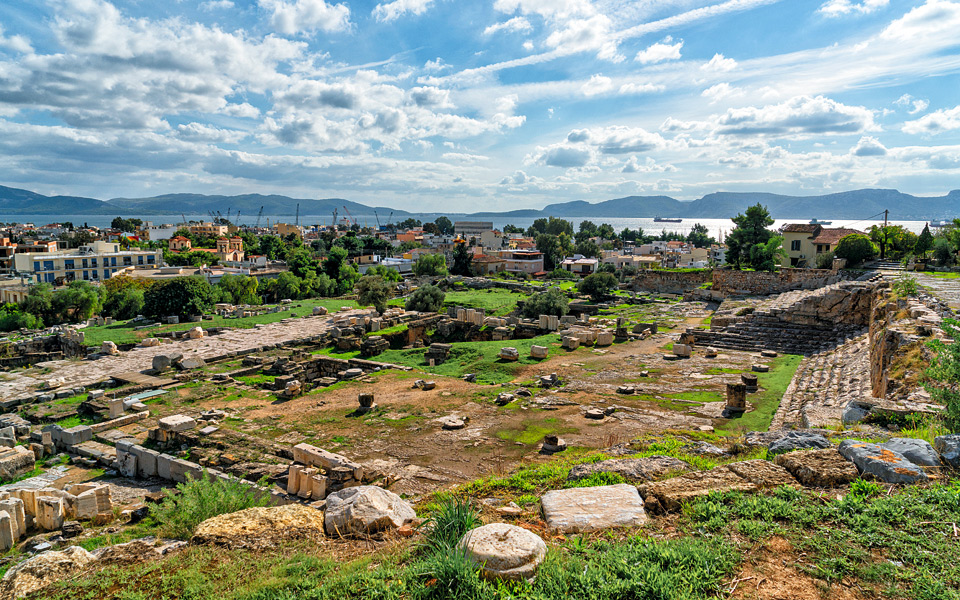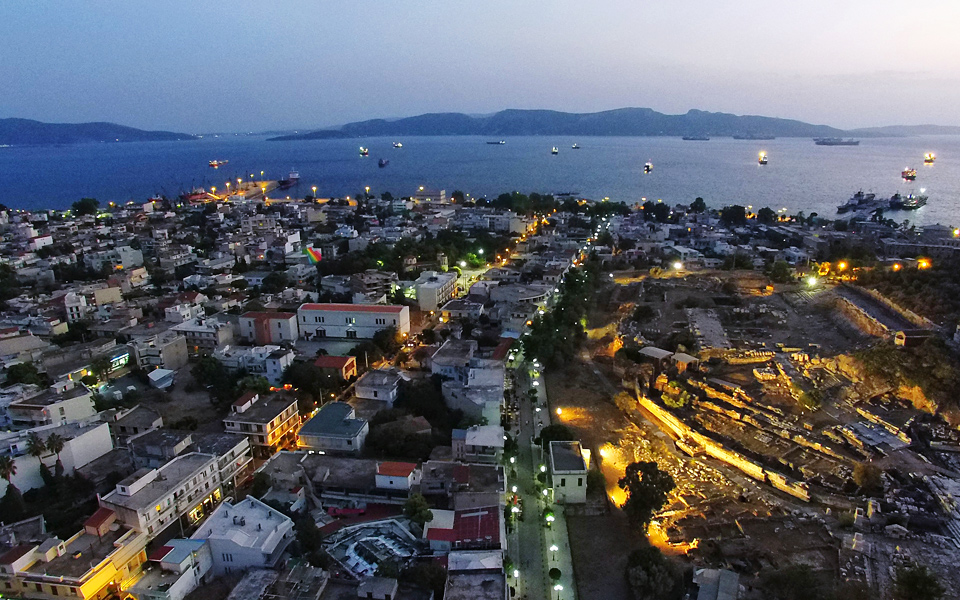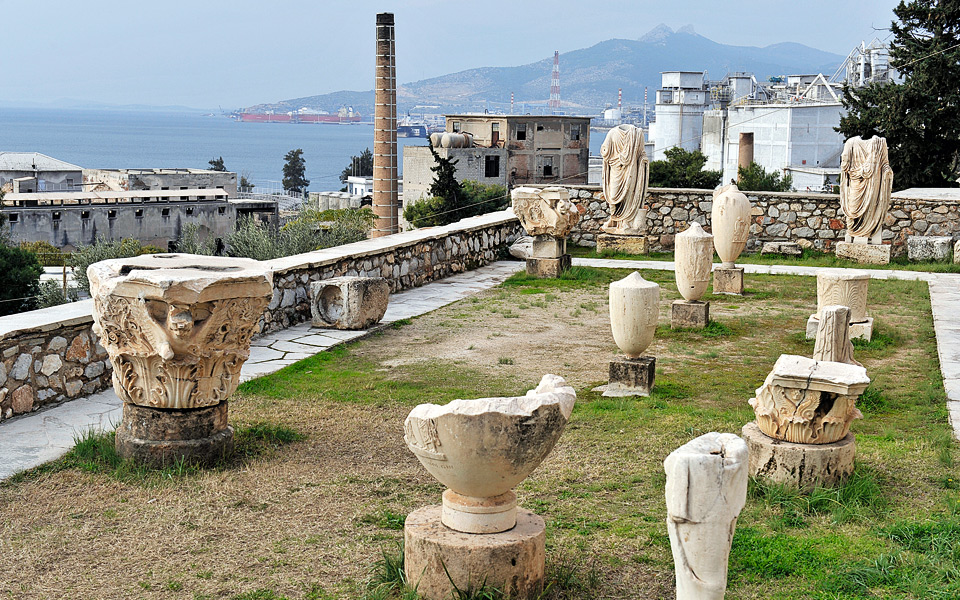The small suburban coastal city of Elefina (ancient Eleusis), 21km northwest of Athens, is hardly the picture postcard image that most people have of Greece. Here, there are no whitewashed houses, flowery town squares, or picturesque sandy beaches. Instead, the post-industrial urbanscape is one of disused factory buildings and smokestacks, and the hulks of decaying ships in the adjacent bay.
Despite this dystopian backdrop, the Attic city has a rich cultural history and is renowned for its archaeological site, the Panhellenic Sanctuary of Eleusis, dedicated to the cult of Demeter, goddess of the fertility and agriculture, and her daughter (“kore”) Persephone. It was here that the ancients celebrated the “Eleusinian Mysteries,” the most famous of the secret religious rites in Greek antiquity.
Much later, in the 19th century, Elefsina became an industrial powerhouse, and welcomed thousands of Greek refugees from Asia Minor following their expulsion by Turkish nationalists in 1922. Today, it is home to Greece’s largest oil refinery.
In an extensive feature article earlier this month by the French daily, Le Monde, Elefsina is characterized as a “a city of contradictions, mysteries, and myths, which is fascinating precisely because of these contrasts,” and underlines that “the archaeological site next to the factories, the abandoned ships at sea and the inhabitants who arrived from all parts of Greece form an extremely interesting mosaic.”

© Perikles Merakos
Back in 2016, when Elefsina was picked as the European Capital of Culture for 2021 (postponed to 2023 due to the Covid-19 pandemic), the mood in the old city, home to some 25,000 inhabitants, gradually started to change. In the cafes and eateries, locals began discussing art projects, the restoration of disused industrial buildings, and the development of new public spaces, cultural venues, and institutions. It was if a phoenix was rising from the ashes.
“This small city – the smallest European capital of culture that has ever been elected – brings together very contemporary issues, such as issues of deindustrialization, unemployment, immigration, the environment, and that is why it was chosen,” says the Director and Artistic Director of the event, Michael Marmarinos, to Le Monde, while Despina Geroulanou, President of Elefsina 2023, noted that “small towns, often in a difficult position, are projected precisely to have the opportunity to change their image and define their future through culture, research, and art.”
Despite the unfettered industrialization of Elefsina in the late 19th and 20th centuries, the city and its tenacious inhabitants are no strangers to hosting large-scale cultural events. Established in 1975, the renowned Aeschylia Festival takes place at the end of August through September each year, in honor of the town’s most famous son, the ancient Athenian playwright Aeschylus, father of Attic Greek tragedy, who was born in Elefsina around 525/524 BC. The annual festival features a packed program of stage productions, art exhibitions and installations, concerts, and dance events, and welcomes visitors from all over the world.

On February 3rd and 4th this year, Elefsina hosted its official inauguration as European Capital Culture with a two-day program of exhibitions and concerts. The opening ceremony featured a spectacular sound and light show over the sea, attracting more than 15,000 visitors. “Our city turned into a huge outdoor festival. We only saw smiles, emotion, and pride and, despite the problems we all face (financial crisis, inflation, etc.), we escaped a little from everyday life,” says the mayor of the city, Argyris Oikonomou.
Over the course of the year, “four hundred and sixty-five events with 192 Greek and 137 foreign artists will be organised in 30 different parts of the city,” according to the article.
Despite the burgeoning interesting in the city’s forthcoming cultural events, president of the Labor Center of Elefsina, Vangelis Liggos, is keen to emphasize that residents continue to be concerned with high unemployment and the rising cost of living: “With inflation, for example, it is very difficult for a worker to get around since no public transport has been developed in recent years.”
Years of neglect and environmental degradation are another cause for concern, especially the issue of shipwrecks in the bay, which continue to leak dangerous levels of chemical contaminants into the water; a “ticking time bomb for the environment,” says Christos Christakis, a member of Ecoeleusis, a local association that fights for the protection of the environment.
Nevertheless, with more and more tourists coming to Elefsina, intrigued by its mythical history, it’s hoped the European capital initiative will spark a cultural renaissance in the former industrial city, and reverse its economic fortunes.












